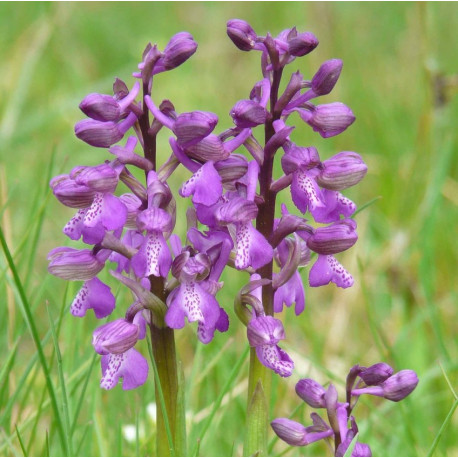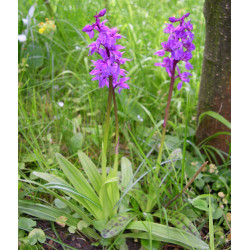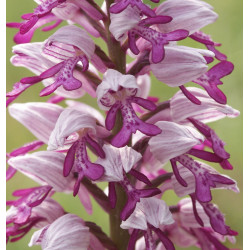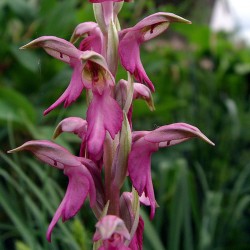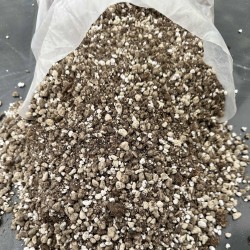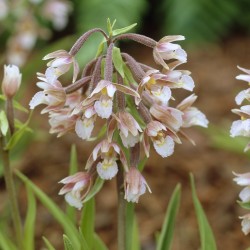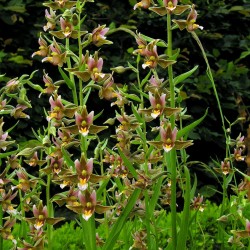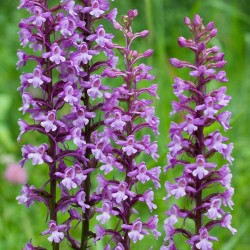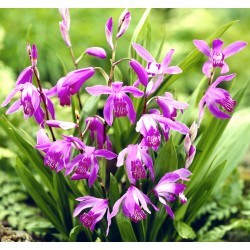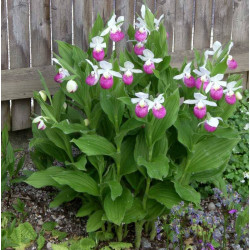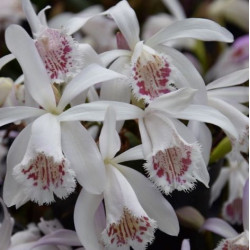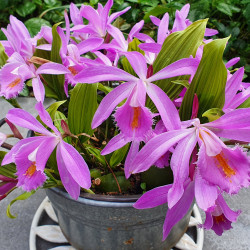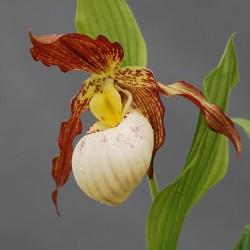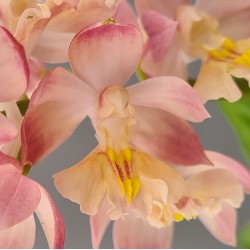No products
Product successfully added to your shopping cart
There are 0 items in your cart. There is 1 item in your cart.
Orchis morio - Green-winged orchid
3637
Botanical rarities
The orchids in this category are extremely rare botanical varieties. Some of them are delicate plants that are less tolerant than the orchids in the 'Easy Garden' category. They are more suitable for a connoisseur audience...
The Green-winged orchid (Orchis morio - Anacamptis morio) is a terrestrial orchid whose range extends throughout temperate Europe. It is usually found in full light on thin meadows and on the edges of light woods.
It is an early flowering plant (April) with a short stem bearing an inflorescence of about twenty flowers whose shades vary from purple to lilac pink.
The Orchis morio is dormant in summer and begins to develop in autumn; no vegetation is usually visible during the summer.
This product is no longer in stock
By buying this product you can collect up to 2 loyalty points. Your cart will total 2 points that can be converted into a voucher of 0,40 €.
- Remove this product from my favorite's list.
- Add this product to my list of favorites.
- Send to a friend
Data sheet
| Range | Collection Garden |
| Color | Pink-mauve |
| Flowering | April, May |
| Height | 20-30 cm |
| Exposure | Semi-shade |
| Hardiness | Very Hardy (-30°C) |
| Presentation | 1 liter container, flowering size plant, 1-2 shoots |
More info
This mainly European genus contains species of very varied shapes and colours. From their rosette of leaves emanates a dense spike of spectacular, delicately cut flowers.
In contrast to other terrestrial orchids, Orchids have a summer dormancy; no vegetation is visible during the summer.
This type of plant is more suited to a connoisseur audience.
Planting
Orchids thrive in calcareous or neutral soils, low in organic matter and well drained. Orchids generally grow in drier places than Dactylorhiza, more often in open areas such as meadows, slopes, roadsides, mountainsides, ...
In cultivation, it is advisable to use lava stone (pumice) or fine quartz to keep the soil light and well drained. We recommend adding a small amount of compost low in organic matter or clay (maximum 5%).
Exposure
The ideal location will be sunny or semi-shaded.
Growth Phase…
Unlike most other terrestrial orchids, Orchids are characterized by a summer dormancy; new leaves appear in late autumn or winter and persist until the flowers bloom in spring and disappear as soon as flowering is over. No vegetation is usually visible during the summer.
